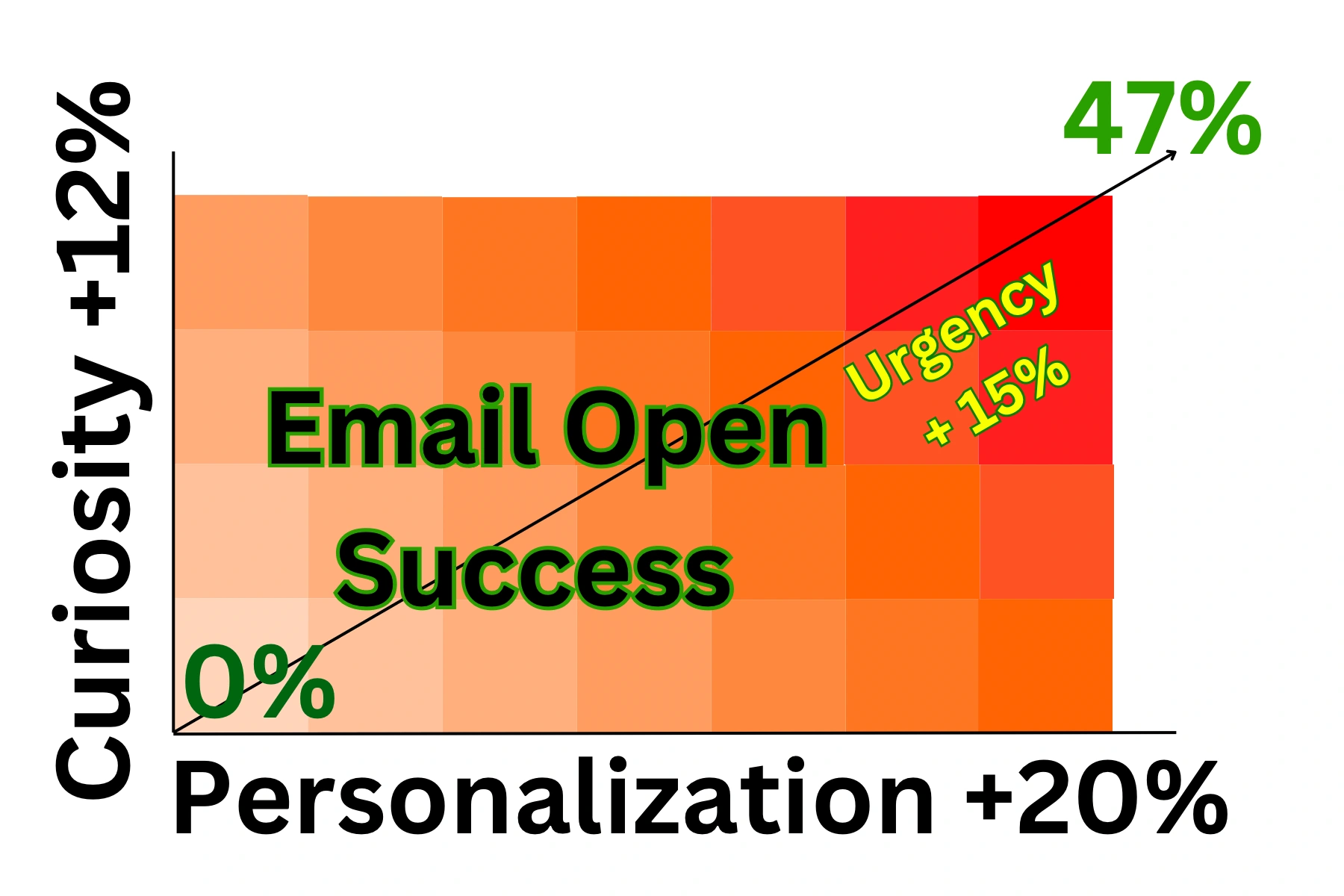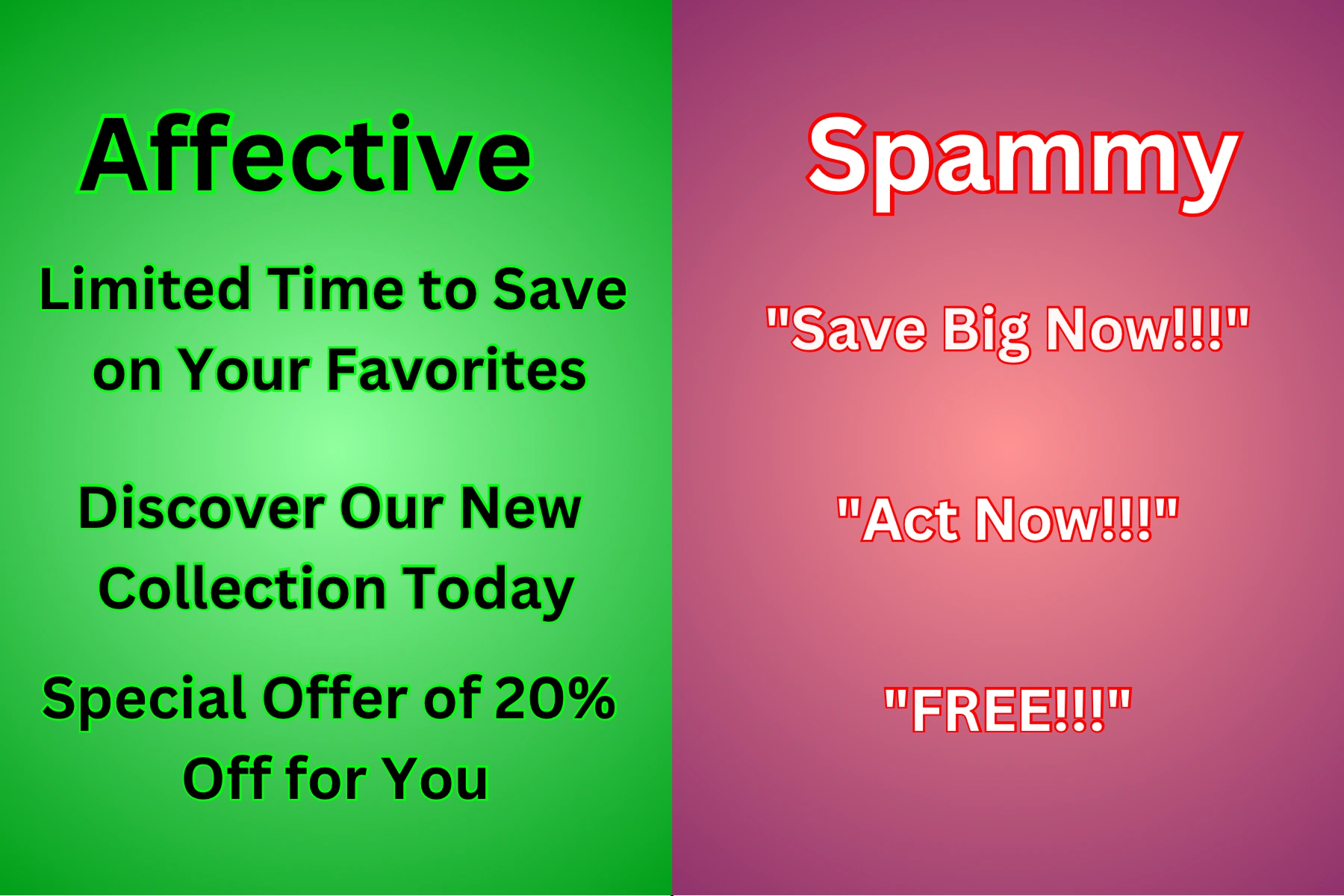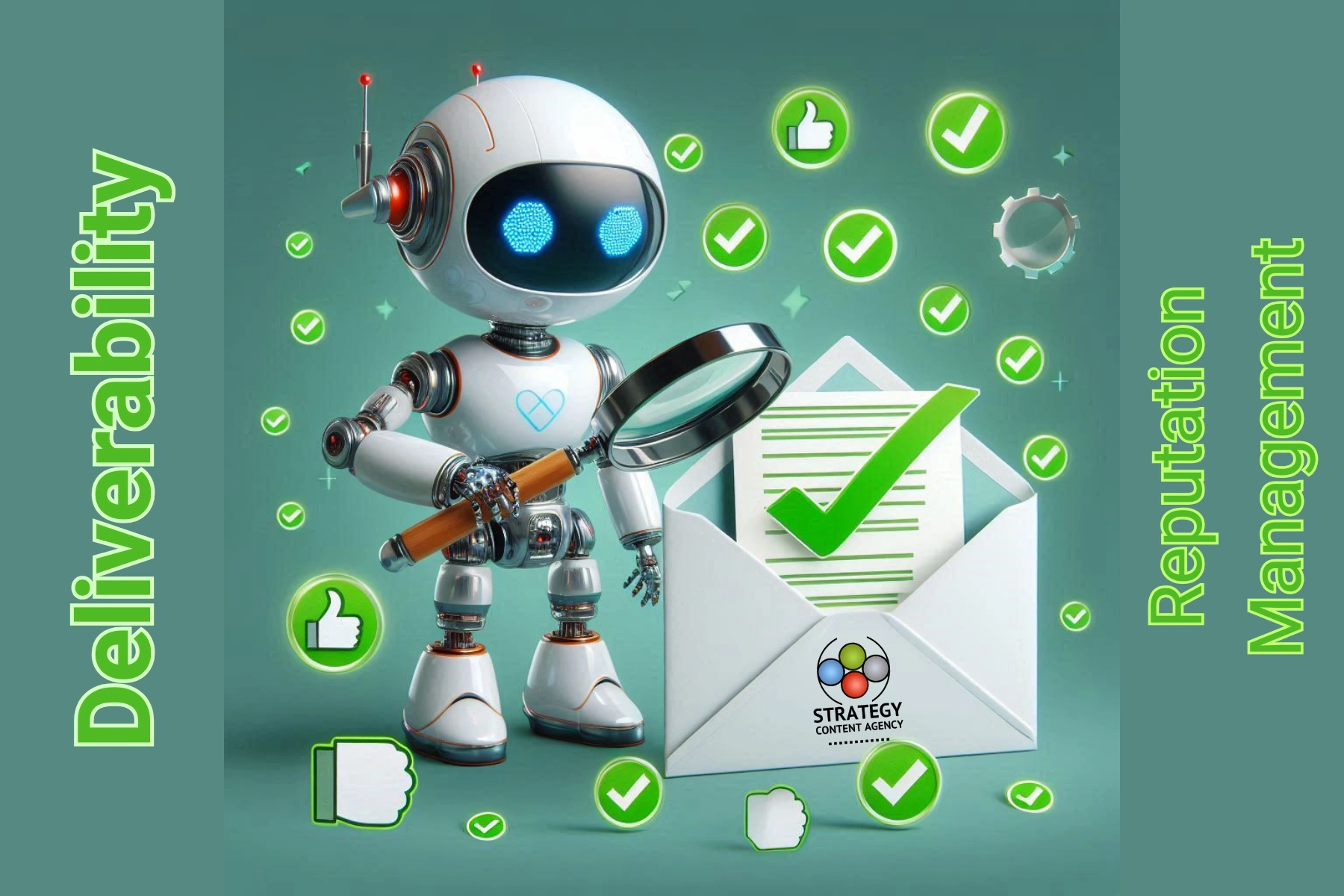
How to Write Email Subject Lines That Increase Opened Rates
Crafting Subject Lines That Connect
Ever scroll through your inbox and instantly delete emails without even opening them?
We all do it.
The subject line is usually the reason — if it doesn’t grab attention, the email gets ignored.
But a great subject line? That makes all the difference.
Studies show that nearly half of people decide whether to open an email based purely on the subject line.
So, if you’re sending emails, whether for business, marketing, or just staying in touch —it pays to get this right.
This guide will explore the science behind effective email subject lines. So whether you’re writing for marketing, sales, or personal engagement, this resource could help you craft subject lines that get results.
Why Your Email Subject Line Matters
Your email’s subject line is your first impression. It determines whether your message gets opened, ignored, or sent to spam. With inboxes overflowing, a compelling subject line is your best chance to cut through the noise.
The 3-Second Rule: How Quickly We Decide
Research suggests recipients decide whether to open an email within 1-3 seconds. A well-crafted subject line increases open rates by up to 47%, while misleading or spam-like subject lines contribute to 69% of spam complaints (OptinMonster, ).
Why This Matters for Your Marketing ROI
A study by DMA Organization found that emails with optimized subject lines generate up to 58% higher revenue per recipient. Small tweaks — like adding personalization or urgency could make the difference between a campaign that converts and one that gets ignored. Want to improve your email engagement? Our Email Communications service provides strategies designed to boost open rates and conversions.
The average open rate of emails across various industries stands at 22.61%, according to data from Mailchimp in 2022. This figure reflects the percentage of recipients who open marketing emails, highlighting the effectiveness of email campaigns in engaging audiences. The average click-through rate across industries of all opened emails is just 2.91%. Open rates and click-through can vary significantly depending on factors such as industry type, and the quality of the email list. Understanding this benchmark can help businesses assess their email marketing performance and make necessary adjustments to improve reader engagement.
Bottom Line
Your subject line isn’t just a label —it’s a critical conversion tool. It determines whether your message gets read, clicked, or lost in a crowded inbox. By mastering subject line neuromarketing, you can boost engagement, reduce spam rates, and maximize your marketing impact.

Who Writes the Most Effective Email Subject Lines?
The best email marketers know their audience inside and out. They use data-driven insights and psychological principles to craft compelling subject lines. According to Litmus, the most effective subject lines come from brands that consistently test and refine their messaging.
Top-performing subject lines are not guesswork; they are backed by A/B testing, customer engagement analysis, and behavioral triggers. Marketers who excel in email engagement understand what their audience values and tailor their subject lines accordingly.
What the Experts Know About Subject Line Testing
Research shows that multiple factors influence open rates, including personal interests, inquisitivity triggers, and even timing. Expert email marketers consistently test these elements:
- The Curiosity Factor: Masters of subject lines create intrigue without misleading, encouraging more opens
- The Trust Signal: They know recognizable senders often outperform unknown ones, even with identical subject lines
- Timing Precision: They analyze when emails perform best — different days, times, or during key seasonal periods
Real-World Results From Subject Line Experts
Email marketing leaders have discovered these proven approaches through rigorous testing:
Personal Connection
- Standard Approach: "Sale This Weekend – Available While Supplies Last"
- Expert Approach: "[First Name], We Saved Something for You"
- Result: The personalized version received 27% more opens
Question Formulation
- Standard Approach: "Tips That Might Help Your Productivity"
- Expert Approach: "Could This Be Affecting Your Daily Workflow?"
- Result: The question version sparked interest and increased engagement
- Standard Approach: "Your Discount Ends Soon"
- Expert Approach: "24 Hours Left: Your Discount is Still Available"
- Result: The specific timeframe created urgency that drove action
For those interested in the technical approach, email marketing experts often employ tools like Random Forest models to analyze patterns in successful emails, turning subject line writing from an art into a data-driven science.
How Does Urgency & Scarcity Drive Email Opens?
Why do subject lines like “Only 3 Spots Left!” or “Last Chance to Save—Ends Tonight!” make us act fast? It all comes down to the Principle of Scarcity, a concept studied by Dr. Robert Cialdini. When something feels limited, whether time, availability, or exclusivity — our brain perceives it as more valuable, triggering a sense of urgency.
Subject lines that highlight scarcity can significantly boost open rates, but they must be used authentically. Overuse or misleading claims can erode trust. Instead, balance urgency with credibility.
Effective Examples:
- “Only 2 Days Left to Claim Your Bonus!”
- “Seats Filling Fast—Reserve Yours Now!”
- “Exclusive Deal for the First 50 Signups!”
- “Low Stock Alert: Get Yours Before It’s Gone!”
It's a recognized strategy that boosts open rates by upto 22% higher for emails with urgency-driven subject lines saw than neutral ones. When used ethically, scarcity creates momentum — ensuring your email doesn’t get ignored.
How Does FOMO (Fear of Missing Out) Boost Email Engagement?
Why does the idea of missing out make us act impulsively? FOMO (Fear of Missing Out) is a powerful psychological driver that taps into our desire to stay in the loop, especially in today’s hyper-connected world. Research from the Journal of Consumer Psychology shows that FOMO-based messaging increases engagement because it triggers a sense of urgency tied to social belonging and exclusivity.
Subject lines that hint at limited-time access, exclusive content, or insider opportunities can ethically boost email open rates — without resorting to clickbait. Overpromising or misleading claims can backfire, leading to lower trust and higher unsubscribe rates.
Effective Examples:
- “Only a Few Know This Trick — Are You One of Them?”
- “Don’t Be the Last to Try This…”
- “This Deal is Live — But Not for Long!”
- “See What Everyone’s Talking About!”
Social media has amplified FOMO, making it a crucial tool for engagement. When used authentically, it encourages curiosity and action — ensuring your email stands out in a crowded inbox.

Recognition Increase Open Rates?
Why do we instinctively pay attention when someone calls our name? Personalization taps into the human need for recognition and relevance, making emails feel more engaging and tailored. Research by the Social News Group found that emails with personalized subject lines generate 26% higher open rates than generic ones. This is because personalized messaging creates a sense of familiarity, making recipients more likely to engage.
But personalization goes beyond just inserting a first name. Effective subject lines can reference past interactions, purchase history, or location-based recommendations. Behavioral triggers — such as reminders about abandoned carts or personalized product suggestions, boost engagement even further.
Examples:
- “John, You Forgot Something in Your Cart!” (Behavior-Based)
- “Exclusive Invite Just for You, Sarah” (Recognition)
- “Love These New Picks, Alex” (Preference-Based)
- “Only for Our VIPs: Your Special Reward Awaits” (Status Recognition)
However, overusing personalization, or using it in a way that feels intrusive — can backfire. Transparency and ethical data usage are key to maintaining trust while increasing open rates.
How Does Social Proof Influence Email Opens?
Why do we instinctively trust what others are doing? Social proof, our tendency to follow the crowd, plays a major role in decision-making. When people see that others have taken action, they feel more confident doing the same.
Research from Nielsen shows that 92% of consumers trust peer recommendations over advertising. Subject lines that highlight testimonials, community involvement, or sheer popularity can leverage this psychological trigger to increase open rates. Crafting strong subject lines is just one part of a successful content strategy. For a more comprehensive approach to audience connection, explore our Content Relationship service.
But social proof isn’t just about big numbers —it’s about relevance. Highlighting how people similar to your audience are engaging with your offer builds trust and relatability.
Examples:
- “Join 10,000+ Smart Marketers Using This Strategy” (Popularity)
- “See Why Business Owners Are Raving About This” (Testimonials)
- “500+ 5-Star Reviews — Here’s Why Customers Love It” (Ratings)
- “Your Peers Are Already Ahead — Don’t Miss Out” (FOMO + Social Proof)
However, misleading claims or inflated numbers can erode trust. Authenticity is key — only use verifiable social proof to maintain credibility while boosting engagement.
How Does Curiosity & Intrigue Encourage Email Opens?
Why do cliffhangers keep us glued to a story? Curiosity is a powerful psychological driver, rooted in the brain’s desire for closure. When we encounter an open loop, a question, an incomplete thought, or a hint at something unknown — we feel compelled to seek the answer.
In email marketing, subject lines that spark curiosity can significantly boost open rates. A study from George Loewenstein’s Information Gap Theory suggests that people experience a strong urge to fill gaps in their knowledge, making them more likely to engage with content that teases information.
Examples of curiosity-driven subject lines:
- “This Simple Mistake Could Be Costing You Customers” (Implied knowledge gap)
- “What They Didn’t Tell You About [Industry Trend]” (Secrets & exclusivity)
- “Could This Be Affecting Your Daily Workflow?” (Open-ended question)
- “Warning: Don’t Try This Until You Read This Email” (Subtle urgency + intrigue)
However, curiosity should be balanced with clarity. Overly vague or misleading subject lines can frustrate recipients and damage trust. The key is to create intrigue while ensuring the email delivers on its promise. Great subject lines aren't just for emails—they can also enhance your social media engagement. Check out our Social Media Management services to see how compelling messaging works across platforms.
How Do Powerful and Emotional Words Impact Open Rates?
Why do some words trigger an immediate reaction while others fall flat? Words carry emotional weight, influencing perception, decision-making, and action. Research in neuromarketing suggests that emotionally charged words engage the brain’s limbic system, making messages more memorable and compelling.
In email subject lines, carefully chosen power words can amplify excitement, urgency, or curiosity, driving higher open rates. Research shows that certain words can trigger strong emotional responses, making emails more engaging. For example, a study by the Advanced Marketing Institute (AMI) found that subject lines with high Emotional Marketing Value (EMV) can boost engagement by up to 40%.
Examples of powerful emotional words:
- Excitement & Curiosity: “Unlock”, “Secret”, “Surprise”, “Revealed”
- Urgency & Scarcity: “Hurry”, “Now”, “Limited”, “Exclusive”
- Trust & Security: “Proven”, “Guaranteed”, “Safe”, “Official” • Gains & Benefits: “Bonus”, “Free”, “Win”, “Instant”
While emotional words are effective, overuse — especially of fear-based triggers, can lead to fatigue or skepticism. The key is to match the tone with the audience and ensure the content delivers on the subject line’s promise.

How Does Relevance and Clarity Ensure Open Rates?
Why do some subject lines instantly grab attention while others get ignored? In a crowded inbox, people scan for messages that feel relevant to them. If a subject line is unclear or too vague, it’s likely to be overlooked. Research from the Journal of Consumer Psychology suggests that clarity in messaging increases trust and engagement, leading to higher open rates. If you need help making your messaging clearer and more impactful, our Message Clarity service can refine your communication for better engagement.
A relevant subject line speaks directly to the recipient’s needs, interests, or pain points. The key is to make the benefit obvious while keeping the wording concise. Jargon or overly complex phrases can create confusion, reducing the likelihood of an open. Instead, straightforward language ensures the message is easily understood at a glance.
Effective Examples:
- Clear & Direct: “Boost Your Productivity with These Simple Tweaks”
- Personalized & Relevant: “John, Here’s Your Exclusive Productivity Guide”
- Benefit-Driven: “Save 30 Minutes Every Day with This Strategy”
By ensuring clarity and relevance, you increase the chances that your email stands out—and gets opened.
How to Maintain a Strong Email Reputation
Ensuring your emails are well-received isn’t just about crafting great subject lines—it’s also about maintaining a positive sender reputation and respecting your audience’s inbox experience.
-
Reputation Awareness:
Your sending reputation is influenced by factors like complaint rates and bounce rates. Tools like Google Postmaster Tools or SenderScore might offer helpful insights about how your emails are being received.
-
Thoughtful Sending Frequency:
Finding a balance in how often you email might help reduce unsubscribes and complaints. Consider what frequency would feel respectful to your specific audience.
Why You Need an Expert to Write Your Subject Lines
Writing effective subject lines is both an art and a science. With years of experience in persuasive writing and marketing psychology, I help intuitive business owners craft emails that connect, engage, and convert. Need a fresh perspective on your email strategy? At Strategy Content Agency, I combine creativity with data-driven insights to help businesses craft effective email campaigns tailored to their audience.
If you'd like to explore some possibilities for your next email campaign, you're welcome to look at my Email Marketing Services. Want better email engagement? Let’s work together to make your subject lines stand out. reach out to start a conversation about what might work for your particular situation.

